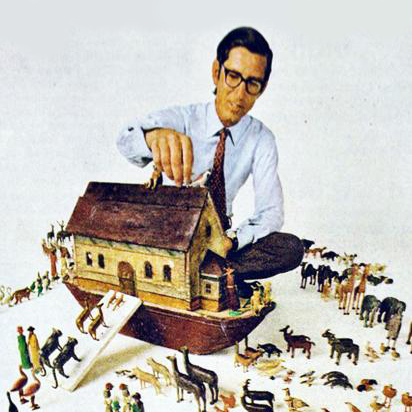Peregrine Pollen’s position as president of Sotheby Parke-Bernet in New York involved livening up the stuffy world of the auction house. On one occasion, after a beachcomber in Florida spotted a gold necklace that turned out to be from a ship sunk in a storm in 1715, the company held a “Treasure of the Spanish Main” sale. Before bidding started Pollen dimmed the lights and silhouettes of the stricken fleet, flung about by a wrathful sea, were projected on to an enormous screen behind the podium.
Among the haul was a trunk of gold coins that were offered for sale only to children, who were formally addressed by the auctioneer as “sir” or “madam”. Behind him a large scarlet macaw named Julius, acquired by Pollen for the occasion, screeched: “Pieces of eight! Get your pieces of eight!” Once the sale was complete Julius retired to the Pollens’ ninth-floor apartment on Park Avenue, where on meeting Patricia, Pollen’s wife, he cried: “Lift up your skirt, lift up your skirt.”

